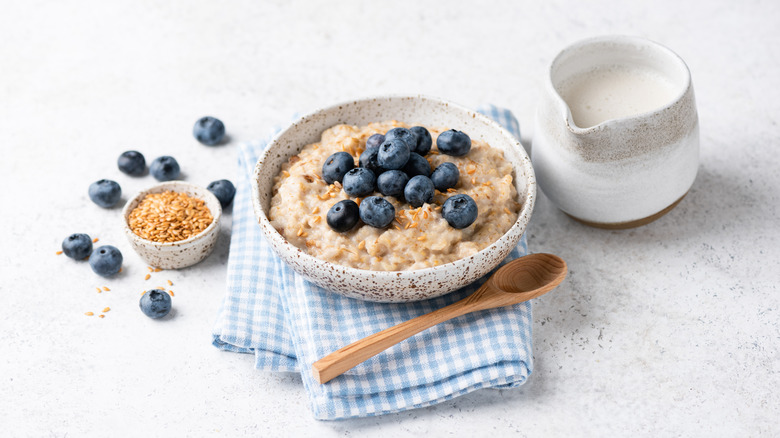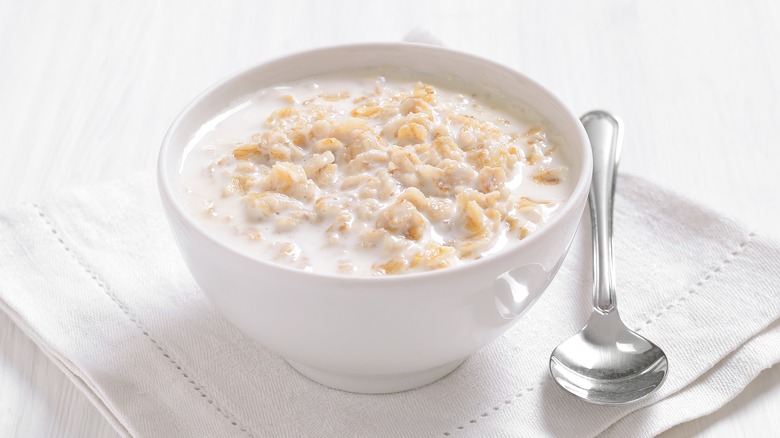Why You Should Never Cook Oatmeal In Milk
Having a good breakfast is important, providing you with the energy and focus you need to tackle your day, explains the Cleveland Clinic. After all, you're literally breaking your fast, and you should make it count with something that is nutritious yet delicious. For many, oatmeal fits the bill. Naturally gluten-free and packed with nutritious vitamins, minerals, and antioxidants, oatmeal is also a good source of carbs, protein, and fiber, which will keep you feeling full for longer, explains Healthline. It also offers a wealth of health benefits, including improving gut and heart health and helping with cholesterol, blood sugar and weight control, according to WebMD.
And although it's somewhat plain on its own, you can dress up oatmeal in many different ways — try adding some fruit for flavor and texture, some nuts for crunch, some honey or maple syrup for sweetness, or even savory ingredients. Oatmeal comes in varieties like steel cut, rolled, and instant and can be prepared in a microwave, slow cooker, in a jar overnight, or in a pot on the stovetop. Most people use water to cook their oats, though other options are available. What you should never use, though, is milk.
Cooking oatmeal in milk leads to an unpleasant texture
According to The Kitchn, cooking oats in milk will result in oatmeal that is "gluey, sticky, and thick," in other words, all the things most people want to avoid when it comes to their oatmeal. That doesn't mean you need to avoid milk entirely, you just don't want to use milk to cook the oats in. Instead, Bon Appétit recommends adding a splash of milk to your bowl, after your oatmeal has been cooked. That way, you will get the extra creamy flavor from the milk, without the unpleasant stickiness.
What you should also add to your oatmeal is a pinch of salt, at the start of the cooking process to really bring out the nutty flavor of the oats. For a more custardy texture, try elevating your oatmeal with an egg, whisked and slow-cooked together with the oatmeal once the liquid has been absorbed by the oats. Or, try transforming the flavor profile of your oatmeal with tea, and adding different ingredients to enhance the subtle flavor of whichever type of tea you used for cooking the oatmeal instead of water.

